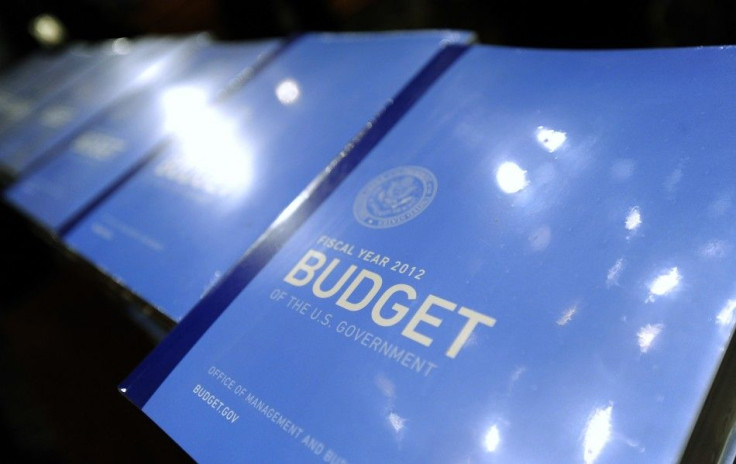To the Relief of Democrats, GOP, Debt Deal Cuts at Least $2.1 Trillion, CBO Says
Analysis

The debt deal bill cleared another significant hurdle Monday when the non-partisan Congressional Budget Office (CBO) estimated that the bill would reduce the federal budget deficit by at least $2.1 trillion over 10 years.
"If appropriations in the next 10 years are equal to the caps on discretionary spending and the maximum amount of funding is provided for the program integrity initiatives, CBO estimates that the legislation -- apart from the provisions related to the joint select committee -- would reduce budget deficits by $917 billion between 2012 and 2021," the CBO said in its report.
"In addition, legislation originating with the joint select committee, or the automatic reductions in spending that would occur in the absence of such legislation, would reduce deficits by at least $1.2 trillion over the 10-year period," the CBO added. "Therefore, the deficit reduction stemming from this legislation would total at least $2.1 trillion over the 2012-2021 period."
CBO Report: Will Make Deal-Supporters Happy
The report is likely to gladden the hearts of the bill's bipartisan backers in Washington, and investors in the U.S. and abroad.
The White House and Democratic and Republican Congressional Leaders needed a substantive deficit reduction estimate from the CBO, called "scoring" in Washington circles, as part of their plan to lobby for votes for the bill Monday, and as one way to get back in the good graces of the American people.
That's because after two weeks of some of the most bitter, heated, and frankly ugly displays of partisan rhetoric, each party's approval rating with the American public is very low -- some argue at an unrecoverable low.
Others argue that if Congressional leaders can produce a deal that represents a good first step toward fiscal health for the nation, then maybe -- if the parties are lucky -- the American people won't say "a plague on both your houses."
Americans: Never Entirely Comfortable With Parties
Americans have never been entirely comfortable with political parties. The Framers/Founding Fathers did not include them in the U.S. Constitution, despite the very partisan nature of politics in America and in Europe during the late 18th century.
Political science teaches us that national parties are essential, given the U.S.'s vast, diverse culture and nation: national parties aggregate interests and encourage voters to make broad choices -- something that helps Congressional leaders formulate and implement national policies.
National parties also mitigate conflict, but that last view is not held by the American public. More often than not -- and particularly in the post-World War II era -- Americans view parties as not lessening conflict, but creating it.
The parties still mitigate conflict today to a certain degree, but if a visitor from another planet stopped by Washington last week, he or she would have seen anything but migitation or mediation: they would have seen two national parties spewing rhetoric, presenting half-truths, and engaging in political posturing, with the clock ticking down toward a devastating U.S. Government default.
Further, the visitors would have seen a third party -- really, a very conservative faction of one of the national parties -- offering no practical ideas regarding how to govern. The faction's stance amounted to: say no, yell "hell no," obstruct, and see what you can do to undermine any solution in which you don't get 100 percent of what you want.
It's no wonder, then, that the CBO scoring is important: it gives Congressional leaders one more asset to deploy to help get the debt deal bill passed.
And if Congressional leaders do succeed in making the debt deal law, they can then turn to the American people and at least argue, "See, here's what we did: we're getting our nation's fiscal house in order and we raised the debt ceiling, so despite all the dirt you saw over the past two weeks, the accomplishment is worth it."
Political/Public Policy Analysis: The CBO estimate for $2.1 trillion to $2.4 trillion in deficit reduction represents another shot-in-the-arm for debt deal supporters. The debate on this bill has been beyond ugly -- it has hurt the standing of the United States abroad.
That said, if the partisan leaders in Democratic and Republican parties can get the debt deal passed, it will begin their rehabilitation process. And to think they'll owe some of it to a non-partisan organization, the CBO.
Based on the positive tone that continues to come out the U.S. Capitol's corridors of power Monday, on a scale of 0 to 100 percent, the likelihood of a U.S. Government default has been lowered to10 percent on Monday afternoon, five percentage points lower than Monday at mid-day.
© Copyright IBTimes 2025. All rights reserved.





















